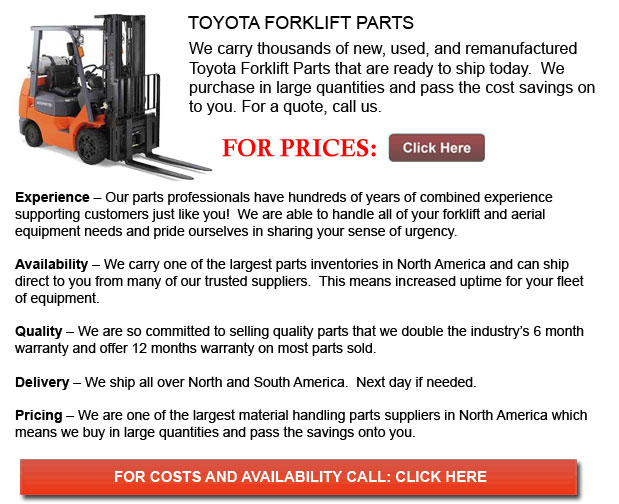
Toyota Forklift Parts - In the United States, Toyota Materials Handling inc., or TMHU, has been the best selling lift truck supplier since 1992. Proudly celebrating more than 40 years of operations, the Irvine, California established business offers a complete line of quality lift vehicles. Due to their reputation of excellence, reliability, and resilience, Toyota remains popular in this competitive market. Quality is the foundation of Toyota's notorious Toyota Production System practiced at all manufacturing facilities, including TIEM, which is stands for Toyota Industrial Equipment Manufacturing, located in Columbus, Indiana. The bulk of the Toyota lift trucks sold in the U.S.A are built here.
All Toyota machinery and components manufactured within North America adhere to the International Organization for Standardization or ISO 14001 standard. TIEM has been honored many times for its commitment to continuous development, and its environmental methods. It is the first and only maker to offer EPA and CARB-certified Compressed Natural Gas powered lift trucks on the market. For instance, the Toyota 8-Series IC lift vehicles emit 70% less smog forming emissions than the existing centralized EPA standards and have complied with California's strict emission standards and policies.
TMHU, U.S.A. - Leading the Industry
The head of Toyota Material Handling, U.S.A., Brett Wood feels that TMHU's achievement comes from its dedication to manufacture high quality lift vehicles at the same time as offering excellent client assistance and service. "We must be able to learn and predict the needs of our customers," said Brett Wood. "As a leader, our success also depends on our ability to address our customers' operational, safety and environmental cost issues." TMHU's parent company, Toyota Industries Corporation, also known as TICO, is listed in Fortune Magazine as the world's leading lift truck provider and is among the magazines impressive World's Most Admired Companies.
New Meaning to Environmental Responsibility
Toyota's parent company, Toyota Industries Corporation, has imparted an outstanding corporate principles towards environmental management within Toyota. Toyota's rich history of environmental protection whilst retaining economic viability cannot be matched by other companies and undoubtedly no other resource handling maker can thus far rival Toyota. Environmental responsibility is an important characteristic of corporate decision making at Toyota and they are proud to be the first and only maker to provide UL-listed, EPA - and CARB -certified Compressed Natural Gas powered lift vehicles. Yet one more reason they remain a leader within the industry.
Toyota first released the 8-Series line of lift vehicles in 2006, yet again exhibiting its leadership and innovation in the industry. Featuring an exclusive emission system that eclipsed both Federal EPA emission values, and California's more environmentally friendly emission standards. The end product is a lift truck that produces 70% less smog forming emissions than the current Federal standards allow.
Furthermore in 2006, Toyota established an affiliation with the Arbor Day Foundation, furthering their dedication to the environment. In excess of 57,000 trees have been planted in local parks and national forests damaged by ecological causes such as fires, as a result of this partnership. 10,500 seedlings have also been circulated through Toyota Industrial Equipment's network of dealers to non-profit organizations and local customers to help sustain communities all over the United States
Toyota's lift trucks provide better productivity, visibility, ergonomics and durability, and most importantly, the industry's leading safety technology. The company's System of Active Stability, also referred to as "SAS", helps limit the possibility of accidents and accidental injuries, in addition to increasing productivity levels while minimizing the likelihood of product and equipment breakage.
System Active Stability senses various aspects that could lead to lateral instability and potential lateral overturn. When any of those factors are detected, SAS instantly engages the Swing Lock Cylinder to steady the rear axle. This alters the lift truck's stability footprint from triangular in shape to rectangular, offering a major increase in stability which substantially reduces the likelihood of an accident from a lateral overturn. The Active Mast Function Controller or the Active Control Rear Stabilizer also assists to prevent injuries or accidents while adding stability.
The SAS systems were initially used on the 7-Series internal combustion lift vehicles which were put on the market in 1999. These systems helped push Toyota into the lead for industry safety standards. Now, SAS is adopted on virtually every new internal combustion products and is standard equipment for the new 8-Series. There are more than 100,000 SAS-equipped lift trucks in action, exceeding 450 million hours combined. The increased population of SAS-equipped vehicles in the field, along with compulsory operator education, overturn fatalities across all designs have decreased by 13.6% since 1999. Furthermore, there have been an overall 35.5% reduction in industry wide collisions, loss of control, falls and overturn from a lift vehicle for the same period.
Toyota's hardnosed standards reach far beyond the machinery itself. The company believes in providing widespread Operator Safety Training programs to help customers meet and exceed OSHA standard 1910.178. Instruction packages, video lessons and assorted resources, covering a broad scope of matters-from personal safety, to OSHA policies, to surface and cargo situations, are available through the vendor network.
Toyota has sustained a relentless presence in the United States ever since its first sale. In 2009, Toyota Industrial Equipment Manufacturing, produced its 350,000th lift vehicle. This fact is demonstrated by the statistic that 99% of Toyota lift trucks sold in America now are manufactured in the United States.
Situated in Columbus, Ind., the Toyota Industrial Equipment Mfg. campus equals 998,000 square feet of facilities spanning 126 acres. Facilities include a National Customer Center, as well as manufacturing operations and distribution centers for equipment and service parts, with the entire investment exceeding $113 million dollars.
The modern NCC was built to operate for TMHU buyers and sellers. The facility includes a 360-degree showroom, a presentation theater complete with stadium seating for 32, an area for live product demonstrations with seating capability for 120; a presentation theater; Toyota's Hall of Fame showcasing Toyota's history since the birth of its creator, Sakichi Toyoda, in 1867, and lastly a training center.
The NCC embodies Toyota's dedication to offering top-notch consumer service. TMHU's 68 authorized Toyota Industrial Equipment, or TIE dealers, along with 189 dealership locations right through the U.S, supply the most wide-ranging and inclusive client service and support in the industry. The company's new and Certified Used lift trucks, service, parts, and financing features make Toyota dealerships a one-stop shop to ensure overall client satisfaction.
![]() Click to Download the pdf
Click to Download the pdf
Forklift Parts
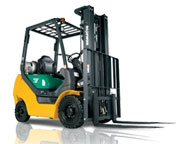


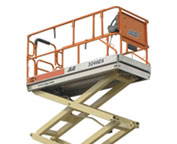

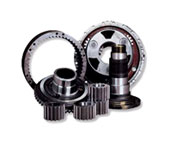
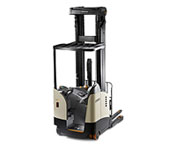

Lift Parts Express
TOLL FREE: 1-888-695-7994
forkliftpartsnorthdakota.com
Email Us
About Us


